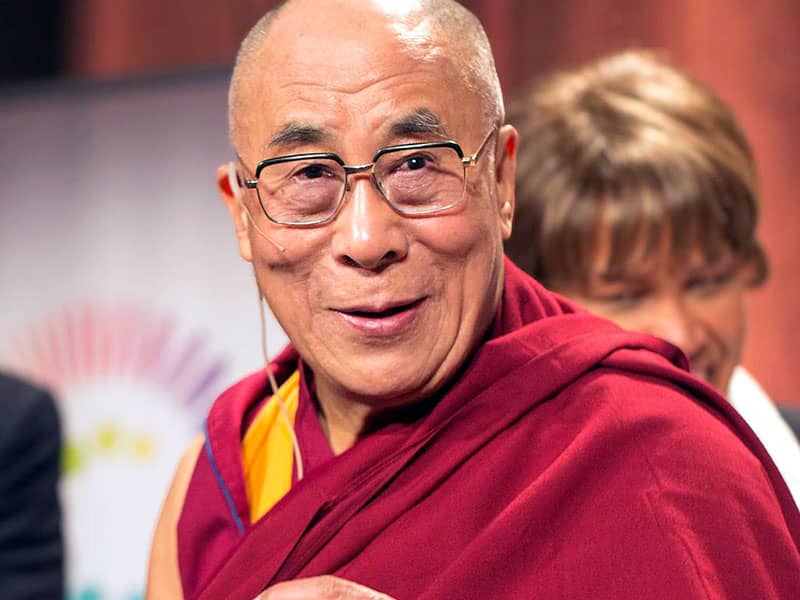Within that half-decade I have attended numerous retreats, read countless books, meditated in earnest, lapsed in my meditation, consulted various teachers, drifted away from those teachers, remained calm and unattached on occasion, and failed to remain calm or unattached on many other occasions. I have not, however, shaved my head, donned orange robes, quit my job, entered a monastery, or taken certain vows that might entitle to me to adopt a new, "more Buddhist" name.
My sister, a born-again Christian, has witnessed all of this activity, and has even read the book I have written on the subject, a book in which I detail my own struggles of faith, my gentle rejection of the Catholicism into which I was born, and the almost-too-numerous-to-mention benefits I have felt in my life since attending my first Buddhist retreat.
So the other day, she said to me, "You aren't really a Buddhist are you?"
"I am," I answered, and haven't had much sleep since trying to nail down what that might mean and why my sister's question so unsettles me.
Am I a Buddhist? How do I even know?
Buddhists have no baptism. Certain Zen denominations allow lay people to take particular vows, and there is of course, the option of monkhood or nunhood for some. But for most of us, there is no entrance ceremony, no confirmation, no mitzvah. And there is no church on Sunday. Those lucky enough to live in a community with a resident teacher might attend weekly meditation or weekly dharma talks, or might attend more than once a week, but I have none of these advantages. The nearest teacher to my small town is two hours away--and in a snow-filled Central Pennsylvania winter, that is a long two hours. The teacher I prefer is four hours away in a rural monastery entirely inaccessible by mass transit. As a result, my visits are few and far between.
Many American Buddhists share this situation.
 | ||
| What makes me Buddhist is the simple act of trying to follow the Buddha's teachings. | ||
 |
And though American Buddhism has been flourishing for a few decades, it is unlikely that more than a handful of us were born into it. I have Catholic friends who haven't been to Mass since 1973, but still consider themselves Catholic, and I suppose they are. They have the birthright, and often a whole goulash of Irish-Catholic, Italian-Catholic, or Polish-Catholic family customs to go along with that birthright.
I am an Irish-American-Catholic-Buddhist. Not much tradition there.
It is this lack of a cultural taproot, I think, that makes me sometimes uncertain, and that makes my friends and family surely uncertain about me. My defining myself as a Buddhist would be so much easier, effortless in fact, had I been born to a Buddhist, probably Asian, family.
Or would it be?
"I grew up Buddhist, but never knew what it meant. Once a year, priests would come to our house, say a blessing, and my father would give them some money. But that was it, and they recited the prayers in Chinese. I had no idea what they were saying. This is my first Buddhist retreat."
Most of us, the Quakers and Catholics, the Methodists and Jews in the room--all of us Yankee Doodle Buddhists--stared in surprise. He went on:
"So ironic, isn't it? Here in America, I am finally learning what the Buddha taught. I am 52, and for the first time in my life Buddhism has some real meaning. I feel very lucky to have found my teacher here."
So there are no easy answers. Perhaps it is a koan.
I still envy my confident Christian friends. No one questions them, whether they carefully follow the words of Jesus or regularly give those words not a moment's thought.
But I am a Buddhist now, and what makes me so is not heritage, not a new Zen name, not outward appearance. What makes me Buddhist is the simple act of trying to follow the Buddha's teachings--to see with unclouded eyes, to recognize impermanence, to strive to practice loving kindness.
My actions make me Buddhist, not trappings, not heritage. And though I am uneven in my fulfillment of what Buddhism directs me to be, I am trying, and in trying, I feel a deep change in who I am. I feel spiritually altered.
Isn't that what religion is supposed to do?

